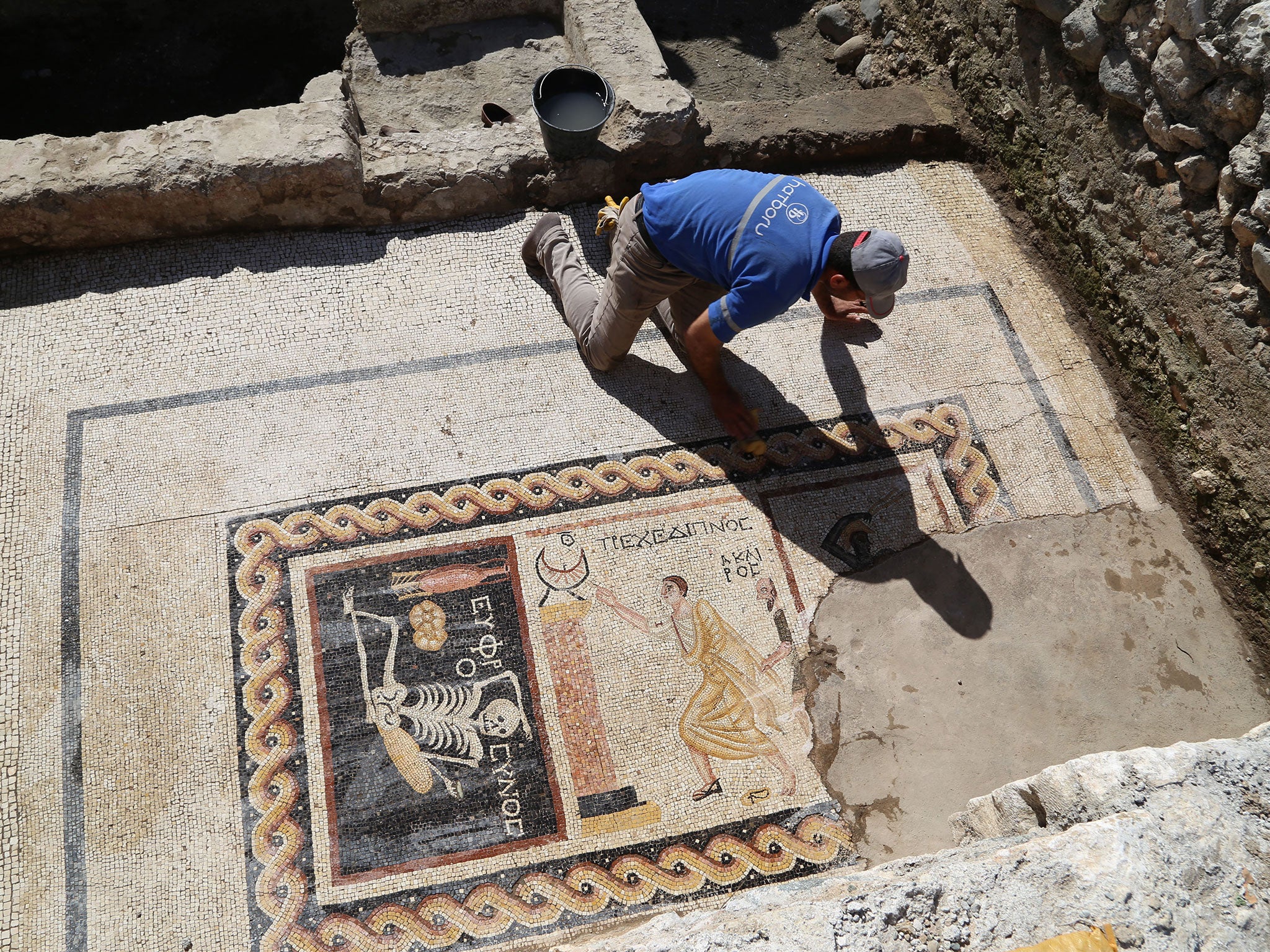Archaeologists discover ancient mosaic with message: 'Be cheerful, enjoy your life'
The mosaic shows a skeleton reclining with a pitcher of wine and loaf of bread alongside Greek text that reads: 'Be cheerful, enjoy your life'

Archaeologists in Turkey have received wizened advice from beyond the grave after uncovering a unique 2,400 year-old ancient Greek mosaic.
The floor tiles, excavated in Hatay province on the Turkish-Syrian border, show a skeleton lying down with a wine pitcher and loaf of bread alongside Ancient Greek text that reads: “Be cheerful, enjoy your life”.
Described as the “reckless skeleton”, the mosaic is once thought to have belonged in the dining room of an upper class home.
According to archaeologist Demet Kara from the Hatay Archeology Museum, who were involved with the excavation, the mosaic is an artefact from the ancient Greek-Roman city of Antioch.
“Two things are very important among the elite class in the Roman period in terms of social activities,” she told Hurriyet Daily News, “the first is the bath and the second is dinner.”
First discovered in 2012 after work began in Antakya to build a cable car, excavations were launched to search the area for more remains.
Now the tiles have been studied in further detail, Turkish researchers say the artful ancient message could be one of a kind.
“There is a similar mosaic in Italy but this one is much more comprehensive,” Ms Kara explained.
The ancient city of Antioch was established in the 3rd century BCE and is said to be the first place where the followers of Jesus were referred to as Christians.
Hatay is known for its vast collection of Roman-era mosaics.
Join our commenting forum
Join thought-provoking conversations, follow other Independent readers and see their replies
Comments
Bookmark popover
Removed from bookmarks